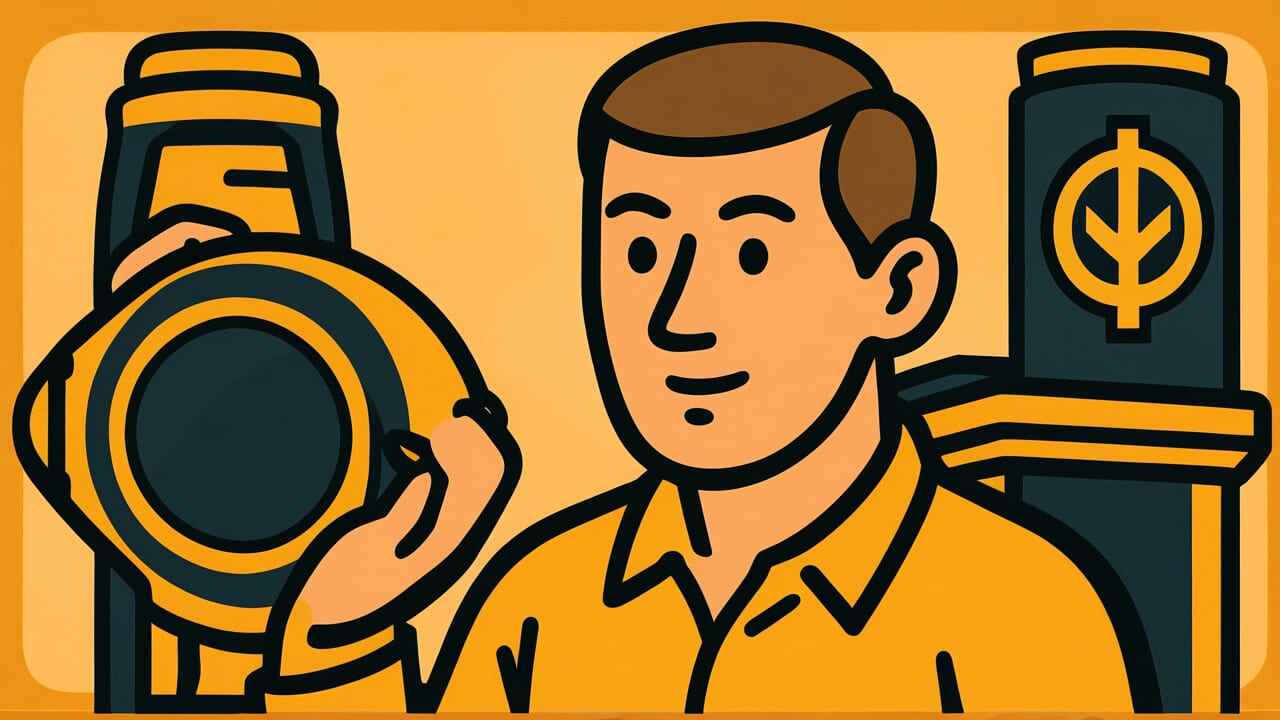How to Read “A handsome man has neither money nor power”
Iro otoko kane to chikara wa nakarikeri
Meaning of “A handsome man has neither money nor power”
This proverb means that men with good looks often lack wealth and physical strength. Handsome men can attract attention with their appearance alone.
Because of this, they feel less need to build wealth or train their bodies. As a result, they tend to be weaker in economic power and physical strength.
This proverb is used to show that human qualities and abilities are unevenly distributed. No one excels in every area.
If someone is outstanding in one thing, they often lack something else. The saying points out this kind of balance in life.
Even today, people use it to explain situations where physical attractiveness doesn’t match economic power or real ability. It also teaches us not to judge people by appearance alone.
Origin and Etymology
The exact origin of this proverb isn’t recorded in historical documents. However, it likely emerged from common culture during the Edo period.
The use of “nakarikeri,” an old Japanese auxiliary verb, shows this proverb has considerable history.
In Edo period townspeople culture, handsome men were called “iro otoko.” Kabuki actors and playboys were typical examples.
Women adored these men, but they weren’t necessarily wealthy. This was a social observation of the time.
Men blessed with good looks attracted attention through appearance alone. They may have felt less need to earn money or build physical strength.
People of that era believed “humans cannot have everything.” Beauty, wealth, and power—having all three was rare.
If someone had one thing, they lacked another. People saw a kind of fairness in this.
This proverb crystallizes the common people’s keen observation and life philosophy. That’s why it has been passed down through generations.
Usage Examples
- That actor is really handsome, but “a handsome man has neither money nor power”—I heard he struggles in real life
- He’s popular with women but has zero savings. It’s truly “a handsome man has neither money nor power”
Universal Wisdom
This proverb has been passed down because it contains deep insight about how human qualities and abilities are distributed. We humans instinctively feel unfairness when someone excels in every way.
Beauty, wealth, power, intelligence, popularity—if someone had all these perfectly, they would make others lose hope. That person would be too perfect for anyone else to compete with.
This proverb expresses the delicate balance in human society. The observation that handsome people tend to lack economic power or physical strength isn’t just prejudice.
It’s also an expression of hope that “some kind of fairness works in the world.” Recognizing that no one is perfect gives us courage to accept our own flaws.
This proverb also warns against relying too much on physical attractiveness. Beauty certainly has value, but it alone cannot enrich your life.
True fulfillment comes from developing diverse abilities in a balanced way. This is the wisdom of our ancestors.
Human value cannot be measured by just one element. This universal truth is why the proverb continues to resonate across time.
When AI Hears This
Living organisms constantly face choices about how to use their limited energy. Male peacocks have huge, beautiful tail feathers.
But these feathers interfere with flying and make escaping predators harder. In other words, they’re disadvantageous for survival.
Yet these tails evolved to prove to females: “I’m so healthy and superior that I can maintain such a disadvantageous ornament.” Biology calls this “handicap theory.”
Human males have the same structure. Facial beauty actually correlates with high testosterone levels. This hormone creates attractive facial features but also suppresses immune function.
In other words, being handsome proves “I have genes good enough to survive despite the risk of lowered immunity.” So less energy goes to physical strength or practical abilities.
What’s more interesting is that this distribution is also a social choice. If you invest time and resources in appearance, you have less time for strength training or skill development.
Edo period people observed both this biological trade-off and the social trade-off. Beauty is proof that you can afford to use survival resources for something else.
The cost of that luxury is sacrificed practical ability. This proverb captures evolutionary logic with surprising accuracy.
Lessons for Today
This proverb teaches us to look calmly at our own qualities and aim for balanced growth. If you’re blessed in one area, that’s wonderful.
But you also need to make efforts not to rely only on that strength.
Physical attractiveness, economic power, physical strength, intelligence, character—many elements enrich life. Don’t settle for one strength.
By consciously developing other areas too, you can build a more fulfilling life.
Conversely, if you feel inferior in some way, that means you have room to grow in other areas.
This proverb also gives us an important perspective when evaluating others. Don’t judge people by just one superficial element.
Try to see their multifaceted value. If you start with the premise that no one is perfect, you can look at everyone with humility and warmth.
Believe in the diverse possibilities within yourself. Aim for balanced growth.



Comments